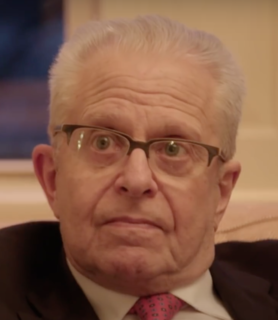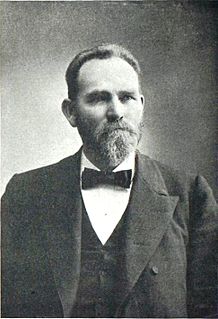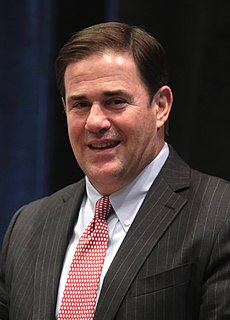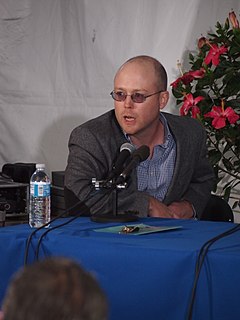A Quote by John Ashcroft
Nothing that we have authorized conflicts with any law regarding privacy or any provision of the constitution.
Quote Topics
Related Quotes
I believe in absolute freedom of conscience for all men and equality of all churches, all sects and all beliefs before the law as a matter of right and not as a matter of favor. I believe in the absolute separation of church and state and in the strict enforcement of the Constitution that Congress shall make no law respecting an establishment of religion or prohibiting the free exercise thereof I believe that no tribunal of any church has any power to make any decree of any force in the law of the land, other than to establish the status of its own communicants within its own church.
Celestial marriage is for the fullness of the glory of god. It is the crowning glory. A man has no right to one wife unless he is worthy of two.... There is no provision made for those who have had the chance & opperternity and have disregarded that law. Men who disregard that law are in the same situation as if they broke any other law. they are transgressors.
I consider the government of the United States as interdicted by the Constitution from intermeddling with religious institutions, their doctrines, discipline, or exercises. This results not only from the provision that no law shall be made respecting the establishment or free exercise of religion, but from that also which reserves to the States the powers not delegated to the United States. Certainly, no power to prescribe any religious exercise or to assume authority in any religious discipline has been delegated to the General Government. It must then rest with the States.
One of these days when I'm finished coaching at Alabama, I'll write an authorized book because there's only one expert on my life, and guess who that is... me. And there won't be any misinformation. There won't be any false statements. There won't be any hearsay. There won't be any expert analysis from anybody else. It will be the real deal.
The Constitution should contain a provision that every officer of the Government who should neglect or refuse to extend the protection guaranteed in the Constitution should be subject to capital punishment; and then the president of the United States would not say, "Your cause is just, but I can do nothing for you."
In an instant, the law was transformed: from the last passenger on the safe-haven bandwagon to a pioneer into uncharted territory. For the first time in American history, it was not only legal to relinquish a baby; in Nebraska, it was okay to abandon any child of any age for any reason at any time - with the full protection of the law.
Thus, if there exists a law which sanctions slavery or monopoly, oppression or robbery, in any form whatever, it must not even be mentioned. For how can it be mentioned without damaging the respect which it inspires? Still further, morality and political economy must be taught from the point of view of this law; from the supposition that it must be a just law merely because it is a law. Another effect of this tragic perversion of the law is that it gives an exaggerated importance to political passions and conflicts, and to politics in general.



































